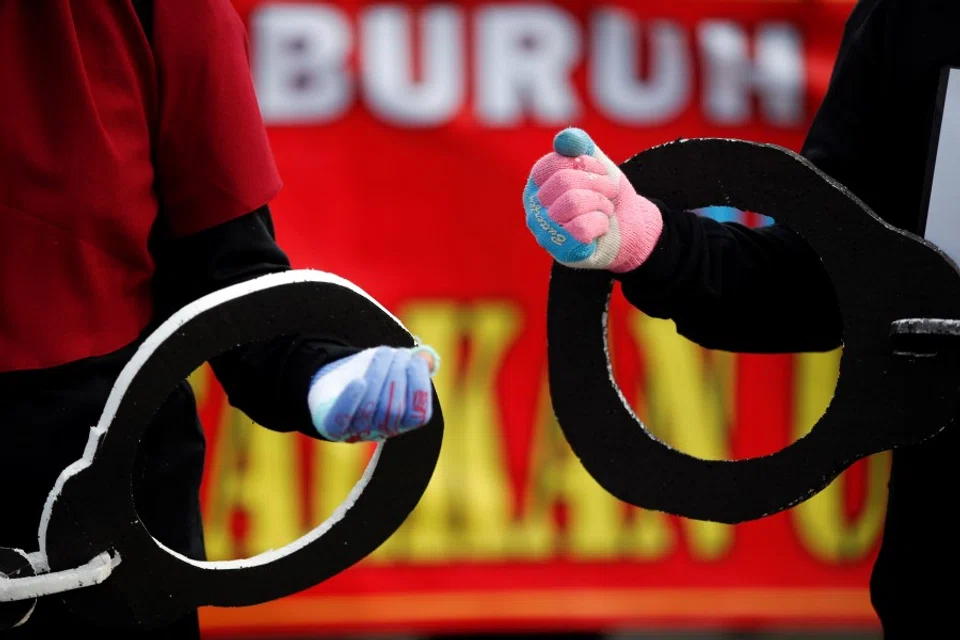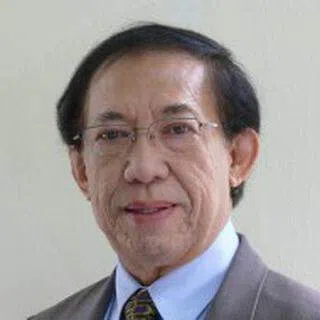Indonesia: Why China-funded companies are targeted by the anti-Jokowi camp
Recently, a Chinese subsidiary nickel factory in Konawe, South Sulawesi, Indonesia, was crippled by fiery worker protests. This latest incident in a string of labour protests in Indonesia may seem to be about discontent among Indonesian workers at their treatment by China-funded companies. However, ISEAS academic Leo Suryadinata says that there may be more to the stoking of anti-Chinese sentiment than meets the eye.

On the morning of 14 December 2020, hundreds of workers under the Konawe Workers Protection Union and the Southeast Sulawesi branch of the National Federation of Trade Unions (KSPN) staged a protest outside the gates of PT Virtue Dragon Nickel Industry (VDNI) in Konawe regency, Southeast Sulawesi province, asking that workers who had been with the company for at least three years to be hired on a permanent basis, and for workers who had been there for at least one year to be given a pay rise.
The police maintaining order on the scene oversaw negotiations between the two sides; the company's representatives felt they were in line with Indonesia's labour laws and declined to compromise. There was no progress by the afternoon while the number of protestors swelled to an estimated 850 to 1,000 people, who broke into the company and set fire to heavy machinery, trucks and factory facilities.

The police tried stopping the protestors and used tear gas to disperse the crowd, and even called for military assistance. The chaos only settled in the evening with the arrest of five young protestors. The company suffered serious losses as a result. While there are no firm figures, operations have come to a halt.
There are many reasons for the protest on 14 December, but the main reason has to do with the company's treatment of Indonesian workers.
This is not the first incident involving VDNI. When the coronavirus epidemic broke out, there was unhappiness with the company for bringing in workers from China, sparking at least two demonstrations and protests, the first in March and the second in late June. Subsequently, Indonesian workers launched protests against the poor terms of their employment.
VDNI is a subsidiary of Chinese firm Jiangsu Delong Nickel Industry, one of the two largest nickel mining companies in China. Five or six years ago, Delong started investing about US$100 million in Southeast Sulawesi, with some 5,500 hectares (some say 7,000 hectares) of factory space, the largest nickel company in Indonesia. In 2017, it started going into production, employing about 6,000 workers, mostly locals, with its investments creating another 10,000 jobs.
There are many reasons for the protest on 14 December, but the main reason has to do with the company's treatment of Indonesian workers. In fact, from 27 to 30 November, there was a workers' strike, and on 2 December, negotiations were held between the employers, labour union, and local officials on two issues: for workers who had been with the company for at least three years to be hired on a permanent basis, and for workers who had been there for at least one year to be given a pay rise.

However, the talks were deadlocked, possibly because while the two demands were in line with Article 59 of Act 13 of 2003 concerning manpower, and Article 42 of Government Regulation No. 78 of 2015 on salaries, these two regulations were removed in the Job Creation Law, passed earlier this year, but which has not yet kicked in.
On 11 December, the KSPN's Southeast Sulawesi branch informed the police that it was planning to hold a demonstration to protest Delong not giving Indonesian workers the treatment and salary they deserved. What was supposed to be a peaceful demonstration turned into a violent situation after labour representatives met with representatives from the company, and police suspect that certain culprits stirred trouble.
Among the five suspects detained by police, two are university students, likely members of Tamalaki, a union of local youths and university students. Social media has it that the members of this group are closely linked to the demonstrations and riots. The chairman Alfian Annas has denied this, but he called on the company to sack the managers of the operations department, showing that he knows the workings of VDNI. In fact, on 30 June this year, he also started a demonstration of youths and university students to block over 100 China workers from coming to Konawe, leading to a clash with police.

Interference with China's BRI?
On 16 December, an article in Indonesia's new Chinese-language e-news daily Feng Zhong Daily News said the incident had caused serious damage to a China company under the Belt and Road Initiative (BRI), and the authorities on both sides had to take it seriously and handle it properly. In other words, anti-China elements in Indonesia were intentionally causing trouble to interfere with China's BRI.
But from Indonesia's perspective, the nickel industry is not "infrastructure" and has nothing to do with the BRI. And while the protests seem to carry anti-Chinese-enterprises sentiments due to the involvement of anti-China elements, for now, there is no firm evidence of this.
The day after the protests, Indonesia's Industry Minister Agus Gumiwang Kartasasmita expressed his regrets at the burning of the factory. He felt the workers and the company could have resolved the dispute peacefully without resorting to violence, and called on local officials and public security agencies to investigate the incident and bring the culprits to justice to prevent recurrences.
A VDNI spokesperson... said the company cares about the lives of locals and has built many public facilities, and when the coronavirus broke out, the company protected Indonesian workers and helped residents around the factory...
The minister urged the company to abide by all of Indonesia's current laws, including safeguarding workers' rights. At the same time, he pointed out that the current government is putting in much effort to invite foreign investments to Indonesia to help its industrial development and to create jobs, and he thanked Jiangsu Delong for its contributions on both counts.
Konawe's administrative and public security agencies also called an emergency meeting to discuss the incident. Konawe regent (bupati) Kerry Saiful Konggoasa subsequently apologised to VDNI for the damage caused; he felt the incident was due to failed communication between the company and workers, and said violent incidents cannot be allowed to recur.
A VDNI spokesperson called on the government to conduct a thorough investigation, adding that the company would also take legal action. He said the company cares about the lives of locals and has built many public facilities, and when the coronavirus broke out, the company protected Indonesian workers and helped residents around the factory with efforts against infection, and contributed funds to the local government to do the same.
The spokesperson also said the company is planning to expand its operations, but this protest would lead investors to hesitate and make funding more difficult.

Political reasons for stoking anti-Chinese sentiment
In fact, the demonstrations and violence in Konawe are linked to the protests in Jakarta against the Job Creation Law back in October, where labour groups demonstrated to get the Jokowi government to rescind the law, because many clauses only consider employers while overlooking the rights of workers.
... those against Jokowi - especially the opposition - feel that China-funded companies aim to exploit Indonesian workers, strip Indonesia's resources, and control Indonesia's economy, while Indonesia does not really benefit.
Second, the demonstrations in both places were similar. The Jakarta demonstration also started peacefully, but was infiltrated by extremists and ended in violence. But the Konawe riot also involved other factors. Relations between VDNI and its employees were never very good, leading to mutual tension. Furthermore, the unhappiness of Indonesians against China workers continued to fester, as people said those from China were "stealing" jobs from Indonesians, and some anti-China and anti-Chinese politicians often capitalised on this.
Besides being a reflection of poor relations between companies and workers, the labour movement in Konawe also has an anti-Chinese-enterprises flavour, because those against Jokowi - especially the opposition - feel that China-funded companies aim to exploit Indonesian workers, strip Indonesia's resources, and control Indonesia's economy, while Indonesia does not really benefit. The large numbers of China workers are also considered a symbol of China "controlling" Indonesia.
And so, the anti-Jokowi camp often uses labour issues involving China-funded companies to start movements against China companies and even against China. However, the halt in operations to a China-funded company following the latest protest and violence seems to have been aimed at damaging Jokowi's "pro-China" economic policies.





![[Photos] Fact versus fiction: The portrayal of WWII anti-Japanese martyrs in Taiwan](https://cassette.sphdigital.com.sg/image/thinkchina/3494f8bd481870f7c65b881fd21a3fd733f573f23232376e39c532a2c7593cbc)